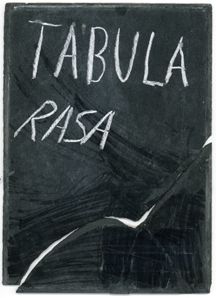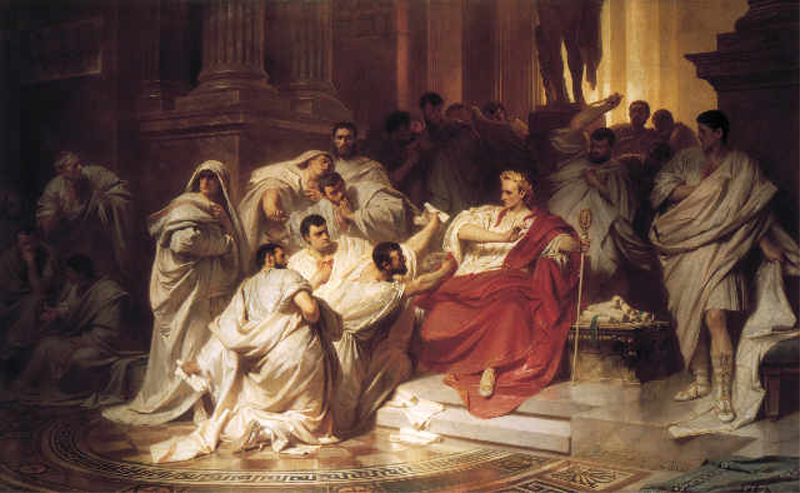Our times require the reexamination of first principles. Clinging to the premises of John Locke, for example, which formed the basis of the oldest democracy, the United States, simply won’t cut it anymore.
Here’s a central Lockean idea, which has been foundational to the Republic, but no longer holds water: “The end of law is not to abolish or restrain, but to preserve and enlarge freedom. For in all the states of created beings capable of law, where there is no law, there is no freedom.”
Linking the law to freedom was a neat philosophical play, and it’s worked passably well for 300 years. But it rests on assumptions about nature and human nature that are passé at best, destructive at worst. In short, the law is necessary in society, but woefully insufficient to human freedom.
The ‘Father of Liberalism,’ who enshrined the idea of the mind as a tabula rasa, shared with conservatives today the notion that humans in nature are innately uncivilized animals living by tooth and claw. It is a view of nature, and of human nature, that’s based on fear and projection.
Thomas Jefferson was accused in his time of plagiarizing Locke, but more likely he was just deeply influenced by him, and borrowing phrases like “self-evident” (as in, “We hold these truths to be self-evident.”)

One of Locke’s bedrock ideas is that the mind at birth is a tabula rasa, or blank slate, and that the mind has ideas (and insights) only through experience. This conventional wisdom is half true.
All ideas arise from previous experience, but all insights arise from direct perception in the present. Therefore experience impedes insight; it is not the ground of it.
As for the tabula rasa idea, we now know that the human brain is ‘pre-wired’ for language, and that the notion of a blank slate is simplistic.
So if it is true that the more one subconsciously accumulates experience, the less the experiencing of insight, what reduces the sway of experience and opens the mind to insight?
Experience does not take the form of sensation, as Locke believed and we habitually accept. Rather, experience takes the place of sensation, and the storehouse of previous memories and emotions occludes sensation. We don’t see, hear, touch, smell and taste as acutely as we did as children because our senses become dulled by experience, misuse and abuse.
Insight, I submit, is the spontaneous, wordless, direct apprehension of a truth flowing from intense sensory awareness. The quintessential example is Archimedes alleged ‘Eureka’ moment in the bathtub, when he had the insight that the water displaced by his body was equal to the weight of his body.
Though it is completely counter to Locke and the Scientific Revolution, the knowledge generated by insight is less important than insight itself. It is the human capacity for insight that will save us, as individuals and a species, not the human capability for knowledge.
Is there knowledge without insight? Sure, raw data is a kind of knowledge that does not depend on insight, though it’s a paltry thing. And AI is already able to generate knowledge.
The much more compelling question is: Is there insight without knowledge? That is, is there a state of insight, which is not formulated in linguistic or mathematical expression, and not rendered into symbols and concepts at all?
Yes. Indeed, to the degree that we awaken our capacity for unformulated and un-interpreted insight, we are tapping into and participating in ongoing creation itself.

Creation is a constant in the universe, and insight is the essence of creation where the human brain is concerned. Insight naturally arises through effortless attention and unwilled negation. To be illumined is to live in a state of insight.
That’s fine and well for the individual you might say, but what about political philosophy, strategy and organization? We are political animals, not just contemplative beings after all.
Humanity can never attain a minimal degree of harmony with the Earth and among ourselves by trying to go from the parts to the whole. A psychological revolution in human consciousness has to ignite to end the growing tyranny of tribalism/nationalism that’s again sweeping the world.
The post World War II international order, largely formed by the United States, is history, and in order to salvage what is best of it, including the United Nations, global citizens have to pour the foundation for a global body before the international order completely collapses
The Trump Administration’s latest abdication of American leadership, by scuttling the Intermediate Range Nuclear Forces (INF) Treaty–the first treaty to reduce the number of nuclear weapons–is ominous. It comes after pulling the USA out of the Paris climate accord, the Trans-Pacific Partnership and the Iran nuclear deal.
There is a vacuum of leadership in the world, and the worst will continue to fill it if the best do not step forward…with enduring insight.
Martin LeFevre
Lefevremartin77 at gmail.com
Fountainoflight.net

